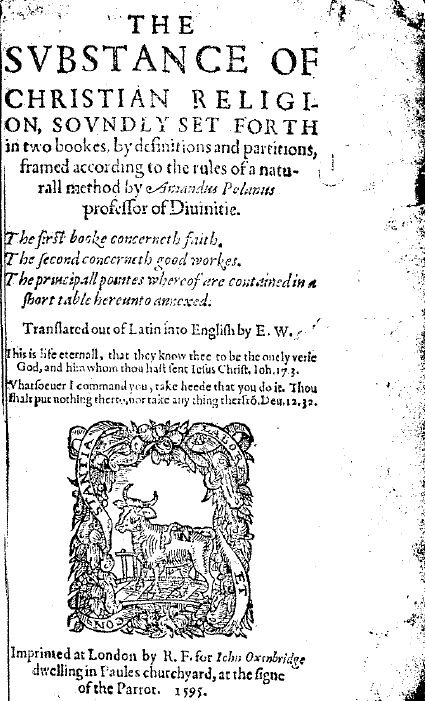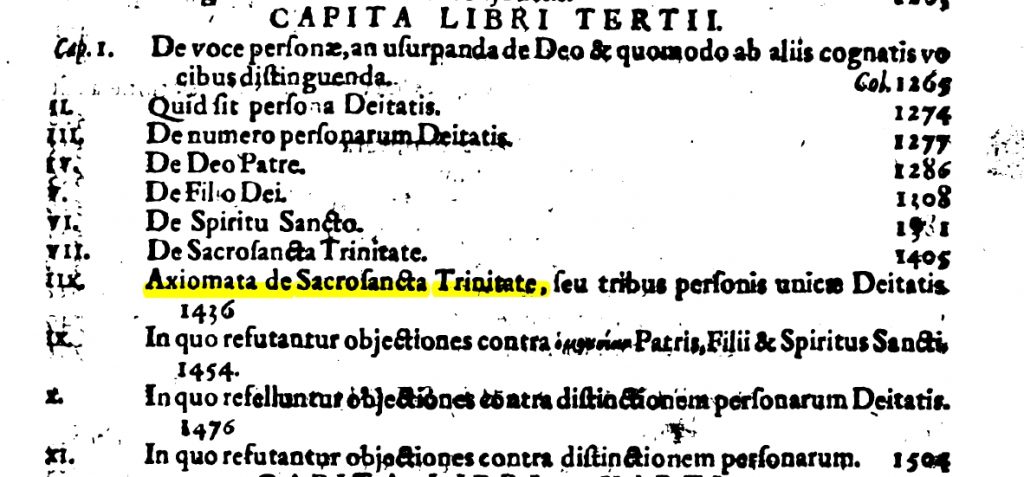
Four hundred years ago, one of Protestantism’s most accomplished theologians published a series of eighteen guidelines (“axiomata”) for understanding the Trinity.
They’re great.
They have never been translated into English.
Nobody talks about them.
Until now! [cue movie trailer]
When I stumbled upon Amandus Polanus’ eighteen Axiomata buried deep in the trinitarian section of his multivolume systematic theology (the Syntagma), I was fascinated. I wanted to be able to read them better than my rudimentary Latin enabled me to. I wanted to talk them over with somebody, at length. So I contacted Ryan Hurd and asked him a few questions. A conversation ensued via e-mail. Pretty soon he had produced a rough translation. Then a more polished one. We kept talking and decided we should talk in public, in case anybody else was interested. So now all seven or eight of you can rejoice, because here is that “Two Guys Talking About Amandus Polanus” podcast you’ve been waiting for.
Beginning with this post, we are going to record our video discussions about this section of Polanus. And beginning with the next post, we’ll also be sharing Ryan’s translation of each axiom as we go along. So watch this space for (a) the world premiere of the English translation of some classic trinitarian theology from the Protestant Scholastic period, and (b) some thoughtful but mostly unscripted conversation about it.
Some terms, facts, links, and pics from this first episode:
Amandus Polanus (1561-1610), professor of OT at Basel.
His works at the Post Reformation Digital Library. Here’s the actual Syntagma, vol. 1.

I mentioned Polanus’ shorter systematics, the Partitiones Theologicae; it was translated into English in 1595 as Substance of Christian Religion, but I’m not aware of any public domain scans of it. (Early English Books Online has it.)
Here’s a picture of where the 18 Axiomata fall in the structure of Polanus’ treatise on the Trinity: Between the positive exposition and the series of refutations:

One work I wish I’d mentioned, especially when we were talking about sources, is Polanus’ Symphonia Catholica, which gathers patristic evidence for a series of major doctrinal claims. The Trinity section starts at page 117. It doesn’t really go into enough detail to answer some of our questions, but it’s very illuminating. For example, when he’s teaching about the internal works of the Trinity distinguishing persons from each other but not persons from essence, his first citation is from Bernard of Clairvaux’s Sermons on the Song of Songs; only then does he cite Augustine’s De Trinitate: in this case, Polanus prefers the clarity, brevity, and beauty of Bernard to the antiquity and authority of Augustine. One reason I wish I had mentioned the Symphonia Catholica in this introductory chat is that the world needs to know that this kind of tradition-citing exercise was a standard way of doing Protestant theology back in the day. Tom Oden did not invent it.